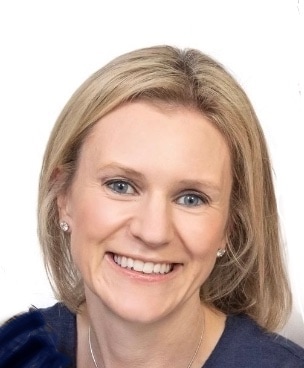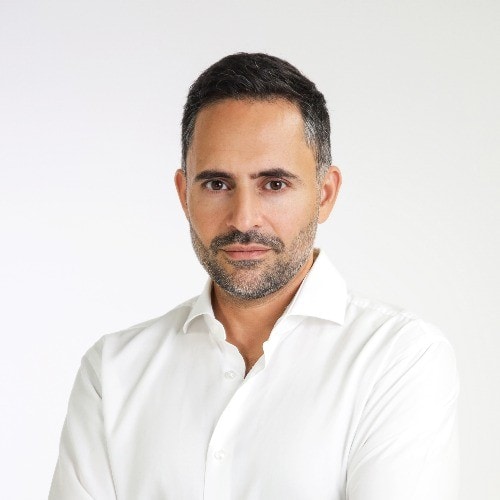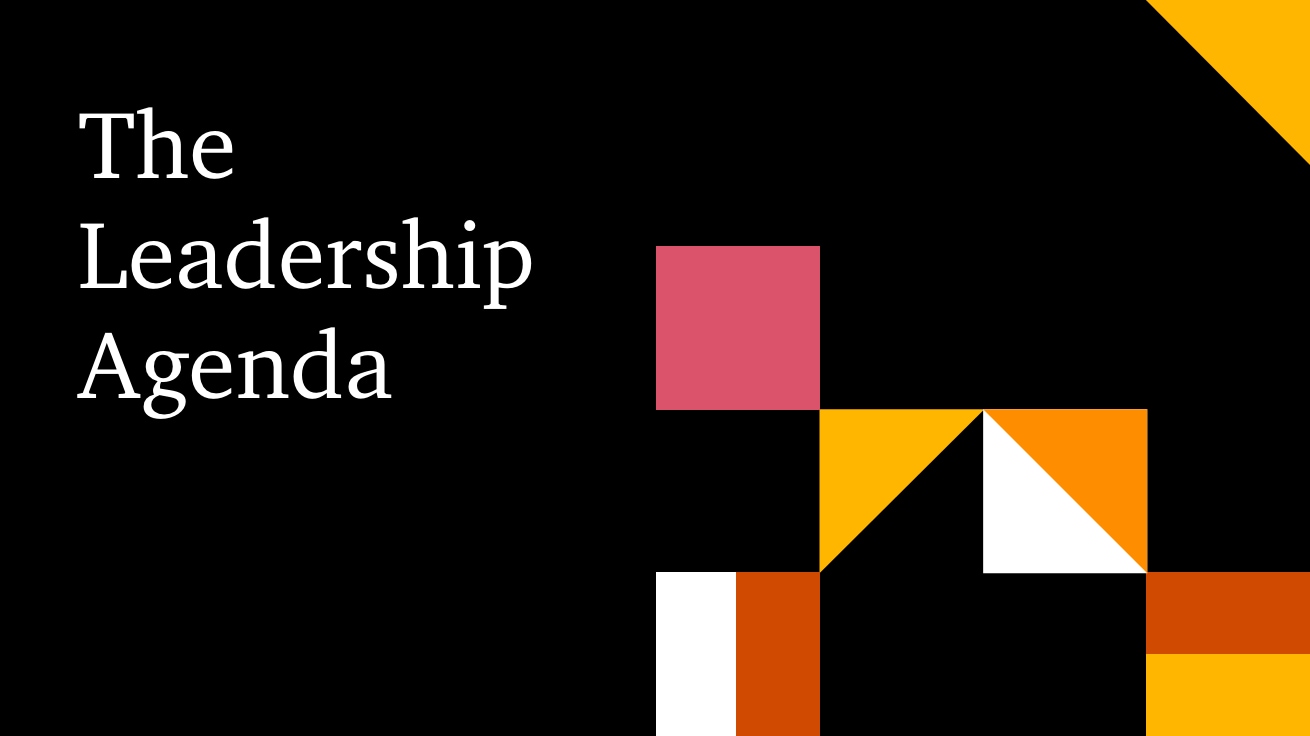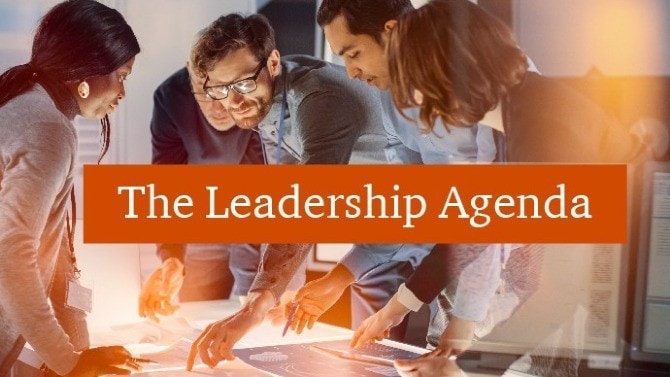
Hear exclusive insights on how leaders can compete in a new energy era. With insights from founder of The Mobility House, Thomas Raffeiner.
This special series of Take on Tomorrow explores PwC's value in motion research, unpacking how the global economy will change over the decade ahead and what that means for business and society. We’ll delve into how business will navigate—and shape—the challenges and opportunities ahead, including emerging technology, climate impacts, and new ways of collaborating across industries.
Along the way, we’ll meet the innovators driving the efforts to tackle society’s greatest challenges and learn how businesses can capture the value that’s in motion and the exponential possibilities that come with it.
This is a modal window.
Beginning of dialog window. Escape will cancel and close the window.
End of dialog window.
People need to be cared for—but the way we approach healthcare treatments hasn’t changed much in recent years. Now, in the age of AI, and with the emergence of more collaborative partnerships, we’re seeing a shift. And it brings a new opportunity for providers to make effective, affordable, preventative, and personalized care a priority—the kind of care that puts the patient at the center.
In this episode of our special Take on Tomorrow series, hosts Lizzie O’Leary and Femi Oke talk to Ali Hashemi, health-tech investor and cofounder and CEO of meta[bolic], to explore how this approach to holistic and efficient care is transforming the treatment of diabetes and other metabolic diseases. Meanwhile, India Hardy, Global Health Industries Partner with PwC UK, shares insight into the field’s unique possibilities and what’s driving the need to reinvent how we care in the decade ahead.
ALI HASHEMI: The entire endeavor is all about the human. And when you think about building a healthcare system or healthcare service, you start with that and you end with that.
INDIA HARDY: What I think is going to be quite revolutionary is how we can be more digital and feel more human in equal balance.
ALI: In the past, healthcare companies of all stripes have tried to own the patient. And I think companies today should really focus on the role that they play in a greater whole story.
LIZZIE O’LEARY: The world is getting older. And as that happens, the pressure on our healthcare systems ramps up.
FEMI OKE: And with the rising costs of managing chronic diseases, plus scientific developments and new technologies, like AI, the way our health needs can be met are being completely redefined.
LIZZIE: All this means there’s a new opportunity for providers. To provide effective, affordable, preventative and personalized care, that puts the patient at the center.
FEMI: I’m Femi Oke, a broadcaster and journalist.
LIZZIE: And I’m Lizzie O'Leary, a podcaster and journalist. And this is a special series of Take on Tomorrow, the podcast from PwC’s management publication, strategy and business.
LIZZIE: Each episode, we look at a different human need: from the way we build to how we care for each other, make things, or move around.
FEMI: We meet innovators forging the future and talk to global experts leading the conversations. Charting the next decade of change, we find out how businesses are approaching human needs differently, to create value for companies and society.
LIZZIE: Today, we’re off to the doctor, as we explore how we care.
FEMI: Let’s understand exactly what the next decade of care could look like. And to do that, we’re excited to be joined by India Hardy, a Global Health Industries Partner with PwC UK. Thanks for taking time to chat with us, India.
INDIA: Great to be here.
LIZZIE: India I wonder if you could set the scene for us a bit, explain how healthcare is set to change over the next decade, and how you are starting to talk to clients about it.
INDIA: The next decade is going to be super exciting in healthcare. We’ve got more of us on the planet. So, between now and 2035, adding about 700 million people, equivalent of two of the US. If you’re born today, you’ll see a doubling of the population over 60 years of age in your lifetime. So the changes that we have predicted for a long time are not just happening in people’s lifetimes, but they’re happening in the next decade, the sort of dynamic decade that we are talking about that is driving the need to really reinvent the future of how we care.
LIZZIE: As this shift happens, what opportunities are there for businesses in this new world of care?
INDIA: So, whilst there’s much change that we anticipate is going to happen in the future of how we care, I think what’s important is to first think about what’s not going to change. There are going to be some enduring principles with care: that it needs to be equitable; t needs to be high quality and safe; t needs to be innovative, resilient, sustainable, and efficient and effective. That is not going to change. So we’re still trying to get to the same destination. However, I think it’s the journey and, in particular, the combinations of players in that journey that’s going to change. We’ve predicted that there are going to be four reconfigurations that are going to drive that new journey to our destination. And we think about that being a world that’s more preventative, a world that’s more personalized, one that’s more predictive and proactive, and lastly, but obviously very importantly, delivering care in a different point of care.
LIZZIE: Thank you, India, we are going to hear more from you in just a bit. But first, Femi, this new way of caring for people—to offer effective, personalized, and affordable care—isn’t just something that is contained to the future. It is happening now.
FEMI: Exactly! Which is why I spoke to the cofounder of meta[bolic], a healthcare company based in the Middle East that is transforming the way we care for diabetes, cardiometabolic health, and other metabolic diseases with a wraparound approach. We began by talking about what the company does differently—from a patient’s perspective:
ALI: So, the patient will come in, draw their blood, and immediately those bloods will get run. While those bloods are being run, we’ll just run through a whole series of diagnostics. Your liver scan, your thyroid scan, your retinal scan. And the doctor sits for 30, 40 minutes and walks them through every biomarker, every data point. The singular goal is to grab that patient in that moment, give them a lot of data, turn that data into knowledge, turn the knowledge into an insight, make that insight something that’s actionable, and then hand that actionable insight to them. After that, there’s a lot of touch points: a dietician, a nutritionist, a diabetes educator, a fitness coach, a lifestyle coach.
FEMI: So you’re clearly using a lot of technology, and then the healthcare wraps around all of it. Is the technology or the care more transformative, do you think?
ALI: Look, that’s a really good question. And the answer is neither. Neither of those things on their own deliver the best outcome. So let’s start on the care side. There’s tons of evidence for traditional care models, and if you look at the data over a very long term, it doesn’t look great. Everywhere on earth, we are more obese and more diabetic and more pre-diabetic than we’ve ever been in human history. Why is that? Is it for a lack of evolution of our care models, lack of evolution and innovation around our drugs and our diagnostics? It’s not, right? Those things have been evolving and improving for the last hundred years. If you flip back now to the tech side, there have been a number of very prominent and very well-funded technology companies that have come largely out of Silicon Valley that have tried to revolutionize care. And those, too, have largely been underwhelming. And so, what we’ve been building over the last five, six years is something that’s truly hybrid. Where, from the ground up, we looked at every process. And we assembled what we thought was the right way to care for our patients. And initially, those patients were very high touch diabetics with a lot of needs. But eventually, we learned that this is adaptable to the general population.
FEMI: So, if we’re talking about a healthcare metabolic’s business model and how you’re thinking about how healthcare can develop in the next decade, how are you influenced by what people need in their healthcare? Where’s the human being?
ALI: I mean, that’s all there is. The entire endeavor is all about the human. And when you think about building a healthcare system or healthcare service, you start with that and you end with that. So, take a diabetic. You’re going to be spending a lot of time managing your own disease. Are you sleeping well? Did you cut down your alcohol? Are you watching your food? How have your blood sugars been? And what are you doing as a patient? In response to those questions, you are most likely going to have a prescription for a bagful of drugs. You may or may not pick up those drugs from the pharmacy, and even if you do pick them up, you may or may not take them as you’re prescribed to take them. That is where healthcare currently stops. And it is suboptimal. So, we give every patient who’s diabetic an Oura ring. We start tracking them. The data starts to get consolidated. The insights start to get delivered. But human centricity is the whole point, isn’t it?Because every disease process is a human process, and if we focus too much on the technology, we lose sight of what really matters, which is that when you’re talking about chronic disease, like diabetes or obesity, at the very core of that is some element of human behavior and human judgment.
FEMI: I’m curious about how you work with different partners, maybe in some unexpected ways.
ALI: We work with a lot of partners. And in an interesting way, even though we are, you know, the smallest fish in the pond for the moment, there’s a lot of really big partners around us that we are, effectively, the glue that sticks them together. So just think about all the various integrations that we have. You know, we’ve integrated with the pharma companies that are providing the GLP [-1] medications to our patients. We’ve integrated with Oura and other wearable devices, Dexcom and Abbott. We have integrations with the lab companies that are doing our blood-based diagnostics. And then there’s a whole series of startups that have brought innovations to the market where, on their own, they wouldn’t have much utility, but by virtue of us doing the heavy lifting, of figuring out how to integrate them into our clinical workflows, they suddenly become really interesting and really valuable. So every single one of the partnerships, all of these companies are working with us on the research angle as well.
FEMI: How do you think companies should be thinking about using technology within the care domain?
ALI: The currency of the future, well, the currency of now, is already the data. In the past, healthcare companies of all stripes have tried to own the patient. And I think companies today should really focus on the role that they play in a greater whole story. Whether that is a hardware role or a data role, or an intelligence role. It is very difficult for anyone to own the patient today, other than the actual caregiver, because the caregiver relationship is based on trust. You’re not going to trust any app on your phone as a default. Sure, those apps might do various different things on their own, but to help you achieve your best outcome, you need all of those things working in harmony and unison. And so, the table stakes of playing in the healthcare domain for any company is figuring out how they play nice in the sandbox with everyone else, because everyone’s building really cool stuff, and none of that cool stuff is going to stand on its own, it’s got to be assembled. So you’re going to get great systems integrators out there, and we hope to be one of them.
FEMI: If we’re thinking about transforming how we care, transforming our healthcare models, where does behavioral change fit into that transformation?
ALI: The whole crux of it is behavior change. The way we become metabolically dysfunctional is in a slow unraveling of habits. We need to re-ravel those habits in order to get back on track. The entire crux of what we do is oriented towards incrementally moving the needle on the decisions that our patients are making. It’s not at the core of traditional medicine, because it doesn’t get reimbursed, right? And so, to understand what ails us, pardon the pun, in the healthcare system is to understand what incentives exist that govern the flow of money. And because of our relatively short insurance contracts, i.e,. one year long, nobody really is incentivized to invest in the things that will reduce risk over terms longer than a year, because then the ROI for the payer is negative, right? So behavior change is a great virtue to have. It’s a great thing to aim for, and you will always fall flat. I don’t get reimbursed for behavior change. I get reimbursed for lab tests, and therein lies the problem.
FEMI: Ali, how do you think healthcare will change over the next decade?
ALI: Well, it’s interesting, healthcare is already changing now. It seems to be changing day by day. So I don’t know that we have to wait a decade. Just maybe next week there will be a meaningful update. There’s a lot that’s changing in many domains. Data is becoming much, much more ubiquitous. Five years ago, when we started our business, Fitbit was kind of the most advanced thing out there, and it was doing step count and some actigraphy. But then you had new players like Oura and Whoop join the chat. And today, your ring can do an incredible array of things. Using simple optical sensors wrapped around your finger, we’re able to track your sleep with a high degree of fidelity, your stress, your heart rate variability. We can derive an algorithm for cardiac fitness. And all of these algorithmic approaches to the data that our bodies are continuously producing is becoming better and better. This data used to live in the health and wellness world, right? It didn’t live in the clinical world. But that’s changing. And I think inten years’ time, all of us are going to be tracking ourselves continuously. You might say, oh god, Ali, that’s a bit Orwellian. That’s not going to happen. No one’s going to trust a company with their health data, especially if it’s continuous. And I would challenge you on that, and I’d say, “Well, you’re kind of already doing it with social media.” That social contract already exists, and that trade has already been made. All of us have traded the depths of our privacy. And the healthcare piece of it is just an extension of that trade. There has to be a value proposition. There has to be something that’s given to people in exchange for the data that’s being taken from them. And what’s being given has to be one thing, an outcome. And so I think, in ten years, I hope we are no longer paying for things. We’re no longer paying or buying lab tests, or drugs, or the time of a doctor. We should not be paying for the things, i.e., the inputs that go into our care, but rather, we should only be buying the outcome itself. We’re not there yet. But if we don’t, and we continue to consume healthcare in the ways that we have traditionally done, we are swiftly going to bankrupt all of our healthcare systems.
FEMI: India, Ali has told us about his company’s approach to care—one that is driven by new technology and new partnerships. How do you see tech changing how we care for each other?
INDIA: I think technology is going to absolutely revolutionize things. We spoke earlier about the gap that exists between demand and supply of how we’re older, we are sicker, and there’s more of us. But, actually, we are still 10 million workforce short in ten years’ time. And we’re not going to fill that gap by training more clinicians and having more healthcare workforce. We are going to need to change the way that that existing supply interacts—what they do do, what they do differently, and what they don’t do. And I think technology has an amazing potential to not only provide a QA, or an augmentation, to what our existing workforce are doing. It can also, in some cases, particularly in the, sort of, back and middle office, actually help free up some workforce and replace what is currently done by humans. But what it also has an incredible ability to do is to quantify and capture new pieces of data that we have never previously been able to do. So, since the dawn of time, we’ve been able to have a consultation between a healthcare worker and a patient, and they can observe and look at the different behaviors. But now, we can actually pick up sentiment analysis in the tone of voice that that patient is speaking in. We can look at the movement of their eyes. We can quantify that with incredible technology to actually be able to demonstrate the difference between the “Doctor, I’m fine” and “Doctor, I’m fine.” And that is a new level of sophistication that we have not been able to do.
LIZZIE: Are there other new partnerships that you’re thinking about that makes care look different or drives better results?
INDIA: Well, it’s funny you use the word drives, because we are seeing an intersection between the future of how we care and the future of how we move. Many, many people spend what is passive time behind the wheel of the car with their hands attached to a steering wheel. Now, if that was to be sensorized and you could understand information about your state of well-being and get feedback from that time that you’re in the car, [it] could be extremely valuable. And equally, we know that a number of motor vehicle accidents happen every year as a result of a health episode that happens to the driver of that car. Whether or not you’re comfortable with a driverless car on 24 by 7, 365 is one question. But if someone said to you, if we could detect through hands on the steering wheel that that driver has lost consciousness, I think most of us would be pretty comfortable with a driverless car.
FEMI: What about other industries, India, if they take part in a totally new way of doing business, what are the opportunities?
INDIA: So one opportunity is to absolutely get on the front foot and be at the either market entrant or market reinventor, in order to capture the new and changing demand. And in the future of how we care, we anticipate that’s going to be about 216 billion of value changing hands over the next ten years. But the other piece that you’ve got to be really careful is that, kind of, defensive play. There are going to be stranded assets on the back of these reconfigurations. An example being in Denmark, over the last ten years, they’ve closed about 40% of hospital beds. So, if you are building hospitals in Denmark, you are actually quite exposed with an asset, and you want to think about where that future’s going so you can repurpose that.
LIZZIE: Look, healthcare systems across the globe look very different depending on where you are. And I wonder, when you think about accessing care, especially if you are a woman, if you’re a minoritized population, what could fundamentally change with our approach to healthcare if it is set up around humans, around the human need for care, instead of feeling like your tiny little person confronting a difficult system.
INDIA: I think that these new reconfigurations in the future of how we care show real promise for equity in a way that we haven’t seen before. So, we did some work a little while ago that spoke about having patients who would previously have been treated in a hospital for a condition, now receiving that care at home or not as an inpatient in a hospital. Actually, that bringing a patient in for a 20-minute-odd clinic appointment, in many cases, took up to 16 person hours to organize. An unwell person who needs to be transported in, someone might need to come out of work in order to do so; they might need to arrange care for other dependents that they have during that time. So, actually, a transition in the point of care and being able to ensure that we keep the quality and maintain, if not improve, the measurements and understanding of someone’s condition and any potential or actual deterioration, but without having to go to a face-to-face environment. There is absolutely going to be still a role for face-to-face care. But what it can do for accessibility and equity, for those that don’t need to be in person or can be augmented by technology, such that the experience is equivalent, or as we mentioned before, with some of those technologies, possibly even better, when done in a technology-enabled way.
FEMI: If we take a global look at how we care. Because at the moment, the way that we care is so different depending on what part of the world you are—are you in the developing world, are you in the developed world? But if you take a company and you say, no matter where you are based, if you are able to look for sector boundaries that you can work across, that will create new opportunities for your business and benefit society at large. What are the possibilities?
INDIA: I mean, the possibilities are significant. There is a workforce, which as we’ve articulated before, is falling short of the need and the demand that we have in terms of growth. But it’s also not necessarily geographically aligned between where the supply and demand is. So there’s significant potential that whether you need a scan read in the middle of the night because you’ve had an accident and come into trauma and orthopedics during the nighttime—actually right now, we’re having a lot of those scans read on the other side of the world, where you have the savings of not having to pay overtime. But also we all know that shift working has its toll on bodies and flexibility and otherwise. So, as long as you fit within the right regulatory constraints and credentialing of the teams. We have scans from the UK being read in Australia routinely. So, a mapping of a supply and demand in a different way. But not even beyond different time zones. You can already get a second opinion clinic from many of the leading health services in the US regardless of where you live in the world. And I think we’re only going to see a speeding up of that, such that, in your hand, you can access a clinician from where you want to.
LIZZIE: So, from your perspective, thinking through all of these big shifts and the ones that will happen in the future, if you are a business and you want to thrive in the world of care going forward, what should you be doing right now to shift your work, shift your priorities, and think about that future?
INDIA: The first thing is stay informed. Things are moving so quickly. I think also within your organization, cultivate that agility, and be flexible, and have that responsive tissue to that fast-moving world, because these are not set-and-forget type decisions. It’s going to be iterative and constant. And those who adapt regularly and quickly, I think, are those who are going to be the most successful. And then, lastly, I say, to be more competitive, you actually need to be more collaborative. This isn’t about whoever has the fastest horse is going to win. It’s about co-creating new opportunities and new combinations that weren’t there yesterday.
FEMI: Finally, India, I feel like we’ve already had a conversation that has taken us way into the future and that we are already living in the future in terms of what is possible about how we care. But if I could push us all to 2035, what would be the challenges that we would be talking about then, or the successes that we would be talking about then?
INDIA: Wow. That’s a great question.
FEMI: You can dream.
INDIA: I can dream.
FEMI: We can prognosticate, we can be futurists together.
INDIA: So, I think many, many things are going to change in the next ten odd years, and the proliferation and the era of AI and the advent of technology and what it can deliver is going to be an absolutely seismic shift. But actually, what is hugely important in healthcare is to be human led and tech powered. And so, what I think is going to be quite revolutionary is how we can be more digital and feel more human in equal balance. I don’t think any of us want to have that moment of care, which is so personal and so emotional, to all of a sudden be delivered by agentic AI. I don’t think that’s what we are after. But by using the right channels at the right time, what I really hope is that by 2035, care can be more digital, but actually feel more human.
FEMI: India Hardy, thank you for talking about how we care and how we can do it better.
INDIA: It’s been a pleasure. Great to chat with you both.
LIZZIE: What an absolutely fascinating series of conversations. I think this sense of balance, right? of what you want a human to do and what technology can do and how you meld those things together seems to be the key. You know, you don’t necessarily, depending on who you are and your age, want to be getting care from a chatbot. But on the other hand, being able to get a second opinion across the world is phenomenal.
FEMI: And I like that balance. I feel like that balance we can take to other parts of our life that seems that technology’s completely taken over and the human beings are being lost because the tech is so impressive. But if we use how we care as a great balance model, maybe everything else that is developing around us, we will get it just about right.
That’s it for this episode. If you felt inspired to rethink the way you do business, then please follow the show wherever you listen. And please leave us a review—it really helps other listeners to find the podcast. For more, head to pwc.com/takeontomorrow.
FEMI: In our next episode, we hear about the robots that could be renovating our homes—changing an age-old industry in the process.
EMANUEL HEISENBERG: If you look at the resources we spend on efficient AI systems or efficient cars, and then you look on the resources and technology we spend on making the houses we live in affordable and better, and bring them to the 21st century. It’s [a] very strange decision we take. We desperately have to change something about that.
LIZZIE: Take on Tomorrow is brought to you by PwC’s strategy and business. PwC refers to the PwC network and/or one or more of its member firms, each of which is a separate legal entity.

Lizzie O'Leary
Podcaster and journalist

Femi Oke
Podcaster and journalist

India Hardy
Global Heath Industries, Partner, PwC UK

Ali Hashemi
Co-Founder and CEO of meta[bolic]

PwC’s Matt Wood discusses how leaders can ensure transparency, accountability and trust in AI as it becomes more embedded in our everyday lives.

Generative AI promises to transform productivity. This Take on Tomorrow episode explores its impact on the labor market and workplace trends.

In this episode of the Take on Tomorrow podcast, business leaders from Patagonia and PwC discuss balancing environmental impact while delivering financial performance.

Explore APAC’s role in global growth and resilience in this special Take on Tomorrow episode with PwC’s Mohammad Kande.

Explore how businesses can innovate to survive. Guests Daniel Susskind and Matthew Duffey discuss the keys to long-term viability and growth in this episode.

Discover how businesses can secure future food systems in this episode of Take on Tomorrow with Rob Cameron of Nestlé and Stuti Sethi of Strategy&.

Explore the quantum revolution's impact on business and society with experts on Take on Tomorrow.

Discover how businesses turn climate challenges into growth. Join Lizzie O’Leary at Climate Week NYC with Helen Clarkson on Take on Tomorrow by PwC.

SAP’s Chief Revenue Officer reveals what it takes to strengthen supply chain networks amid continuous disruption. Listen now.

Microsoft’s Chief Security Advisor in EMEA, Sarah Armstrong-Smith, joins the podcast to discuss how generative AI serves as both challenge and safeguard for cyber defense. Listen now.

As global urbanization accelerates, cities can position themselves to grow more inclusive and resilient by harnessing technology and data. Listen now.

How can CEOs position their businesses for success in an age of continuous reinvention? Listen now.

How can reducing energy demand accelerate the climate transition and create economic opportunity? Listen now.

The rapid advancement of generative AI is heralding a new era for workers—and charging leaders with a responsibility to navigate unprecedented opportunities. Listen now.

Discover the current impact of climate technology—and its emerging trends—in this special episode, recorded live at the COP28 climate change conference. Listen now.

Climate action is lagging, despite increased awareness of its urgency. How can progress be accelerated? Listen now.

Today’s tensions vs. tomorrow’s threats: how can CEOs master the balancing act? Find out—and hear the big takeaways from our 2023 CEO Survey. Listen now.

In Episode 12 of the Take on Tomorrow podcast from strategy+business, Alison Rose, CEO of NatWest Group, explores how financial institutions are prioritising climate change.

We live in a world of ever-increasing mobility. Find out what business should do to adjust and prepare. Listen now.

In Episode 9 of the Take on Tomorrow podcast from strategy+business, author Azeem Azhar exploresthe societal implications of fast-evolving technologies.

The number of young people in the labor force is falling fast. Learn how businesses can give people the skills to find work and succeed. Listen now.

In Episode 8 of the Take on Tomorrow podcast from strategy+business, PwC’s Pete Brown explores how employers can find opportunity in an era of changing expectations.

In Episode 7 of the Take on Tomorrow podcast from strategy+business, PwC’s Ian Milborrow explores the pitfalls and potential of carbon taxation.

In Episode 6 of the Take on Tomorrow podcast from strategy+business, business ethics scholar Alison Taylor discusses how diverse stakeholders are driving change.

In-depth analysis, quick-hit summaries, interactive data, and visual storytelling to inform and inspire the C-suite.

Sharp, actionable insights curated to help global leaders build trust and deliver sustained outcomes.
AI, climate change and geopolitical shifts are reconfiguring the global economy. We’ve mapped where value is moving over the next decade, so you can build a future-ready business to capture it.
Sharp, actionable insights curated to help global leaders build trust and deliver sustained outcomes.
Global Clients and Industries Leader, Partner, London, PwC United Kingdom
© 2017 - 2025 PwC. All rights reserved. PwC refers to the PwC network and/or one or more of its member firms, each of which is a separate legal entity. Please see www.pwc.com/structure for further details.


